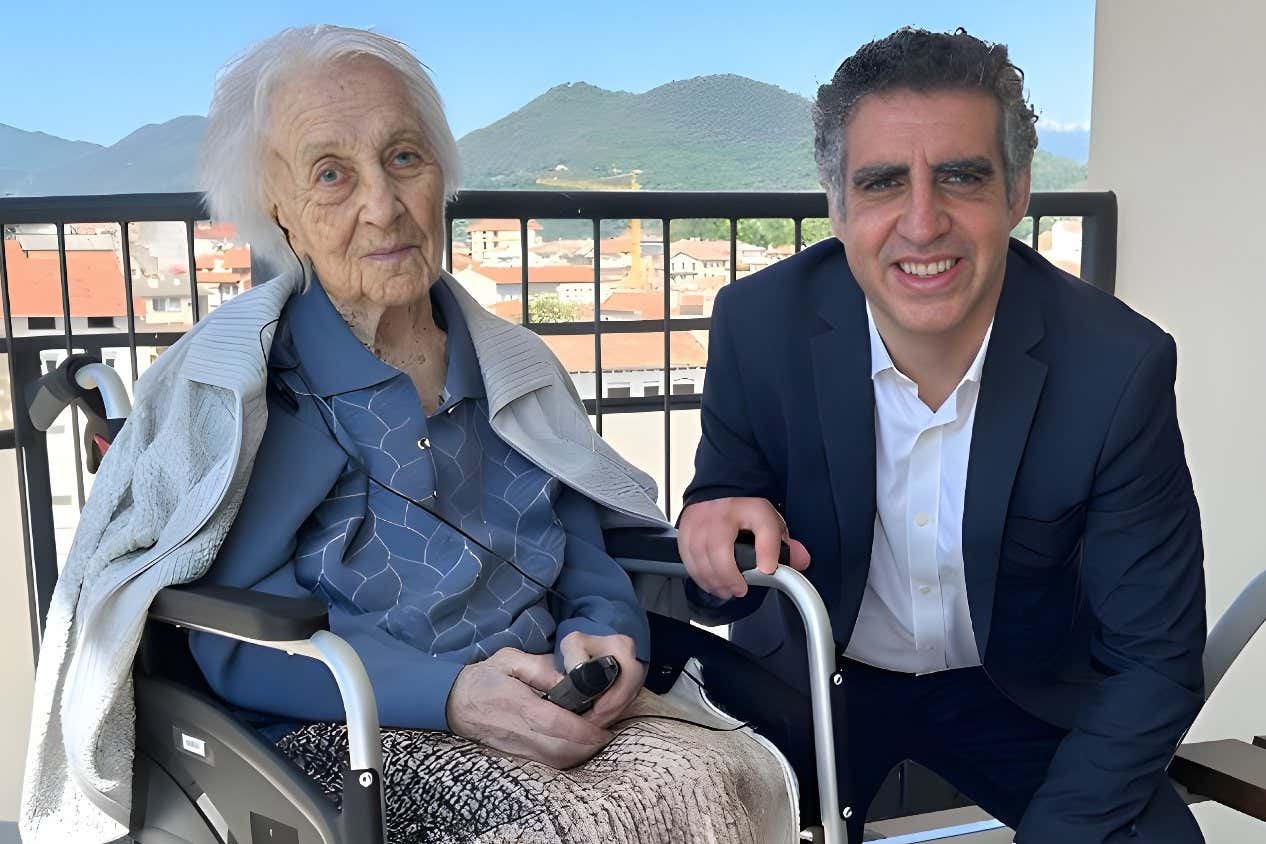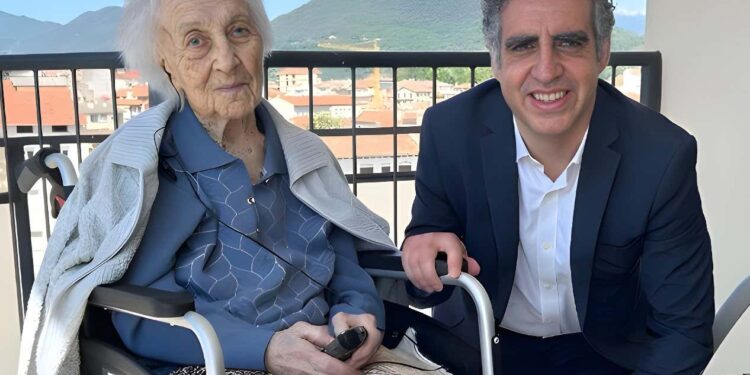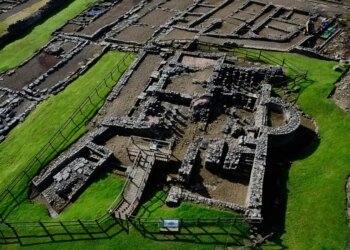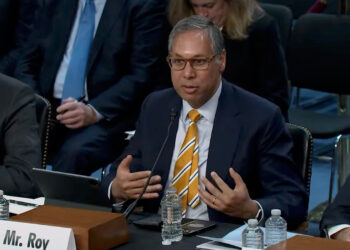
María Branyas Morera, pictured with scientist Manel Esteller, took part in a study to help researchers understand her longevity
Manel Esteller
Between 17 January 2023 and 19 August 2024, María Branyas Morera, of Spain, was officially the world’s oldest person, until she died aged 117 years and 168 days. To uncover the secrets of her extraordinary longevity, a team of researchers has done a deep dive into her genetics, microbiome and lifestyle.
When Morera was 116 years old, the team collected samples of her blood, saliva and stool, to analyse her genetics. “She had an exceptional genome enriched in variants in genes that are associated with enhanced lifespan in other species, such as dogs, worms and flies,” says team member Manel Esteller at the Josep Carreras Leukaemia Research Institute in Barcelona, Spain.
Morera, who showed no sign of dementia, also had many gene variants that keep blood lipid levels low, protecting the heart and cognition, says Esteller. “At the same time, she was devoid of gene variants associated with the risk of pathologies such as cancer, Alzheimer’s and metabolic disorders.”
Blood test results also revealed that her lipid metabolism was among the most efficient ever reported, according to the researchers. “Her lipid profile was amazing, with very low cholesterol,” says Esteller. “This was related to her frugal diet and genes that quickly metabolised damaging molecules.”
Esteller says Morera didn’t drink alcohol or smoke, and adhered to a Mediterranean diet, made up of lots of vegetables, fruits, legumes and olive oil. She also ate three servings of plain, sugar-free yoghurt every day.
The team’s tests also suggest that Morera retained an efficient immune system into old age and a gut microbiome characteristic of a much younger individual.
One of the most “startling” findings was the high levels of Actinobacteriota bacteria in her gut, including the well-known probiotic Bifidobacterium. This typically declines with age, but is elevated in centenarians and supercentenarians, and it is thought to have multiple anti-ageing benefits, such as reducing inflammation.
The team suspects her yoghurt consumption helped continuously replenish her Bifidobacterium levels. “It shows that maybe a dietary intervention can be associated not only with avoiding obesity and other pathologies, but also with prolonged life, acting through the microbiome gut landscape,” says Esteller.
Finally, the scientists tried to gauge whether Morera’s biological age differed substantially from her chronological age. This was done by creating an epigenetic clock based on her DNA methylation – the process in which DNA adds or removes chemical tags that help switch various genes on and off. “Her biological age was an average 23 years younger than her chronological age, one of the reasons that she was alive,” says Esteller.
Previous research suggests that supercentenarians can have genetic variants associated with various medical conditions, such as Alzheimer’s disease or heart problems, but somehow have the means to endure them, leading to a long life. “Very few studies are available for supercentenarians. In these [previous ones], only one dimension is studied, e.g. [the] microbiome,” says Esteller. “Our study shows that overcoming such diseases is a combination of good genes plus the other factors: [a] beneficial microbiome, slowed-down biological age shown by a younger epigenome and an efficient immune system, plus the behaviour part – no smoking, no alcohol, low-fat diet, etc.”
Richard Faragher at the University of Brighton in the UK says the study demonstrates how many tests are now available to longevity researchers, but cautions that this is a case report of one individual and there is a “danger that a slightly unusual variant in, for example, a gene can be turned into a scientific ‘just-so story’ about its relevance to ageing”.
Instead, he says there are two main explanations for the survival of very long-lived individuals. “Firstly, that there is something special about them, for example genetically, and secondly, survivorship bias, aka they got lucky,” says Faragher.
To offer proof against her longevity just being luck, there would need to be evidence that Morera is part of a family in which people are known to be long lived, which isn’t presented in this study, he says.
Topics:
Source link : https://www.newscientist.com/article/2497328-worlds-oldest-person-had-a-young-microbiome-and-exceptional-genome/?utm_campaign=RSS%7CNSNS&utm_source=NSNS&utm_medium=RSS&utm_content=home
Author :
Publish date : 2025-09-24 16:00:00
Copyright for syndicated content belongs to the linked Source.











